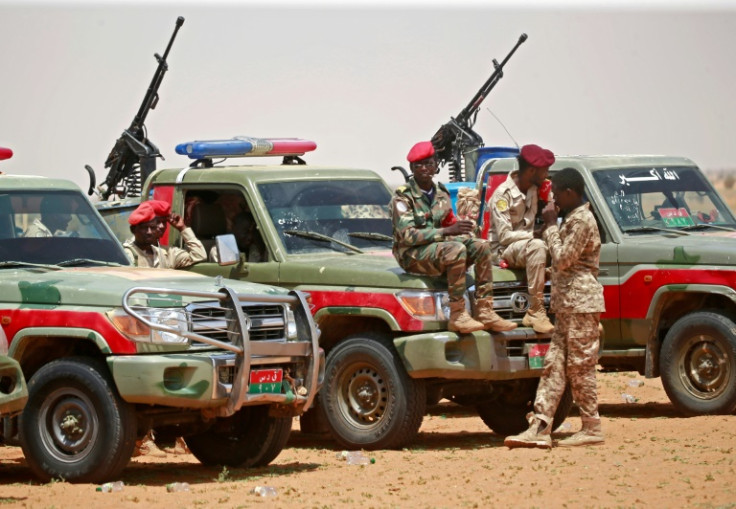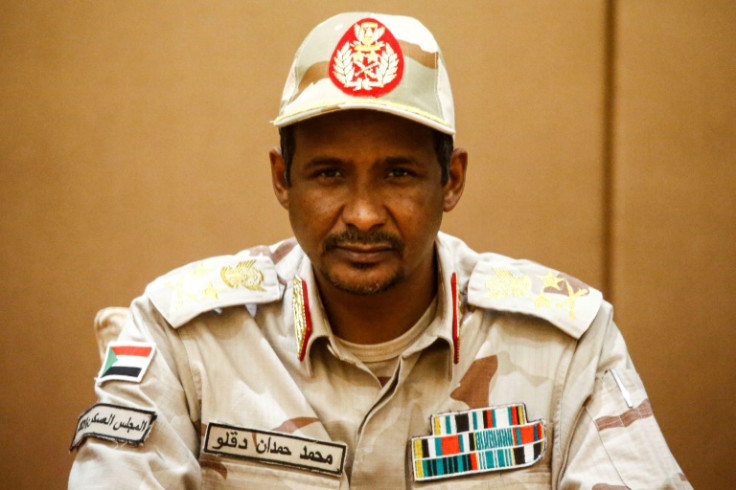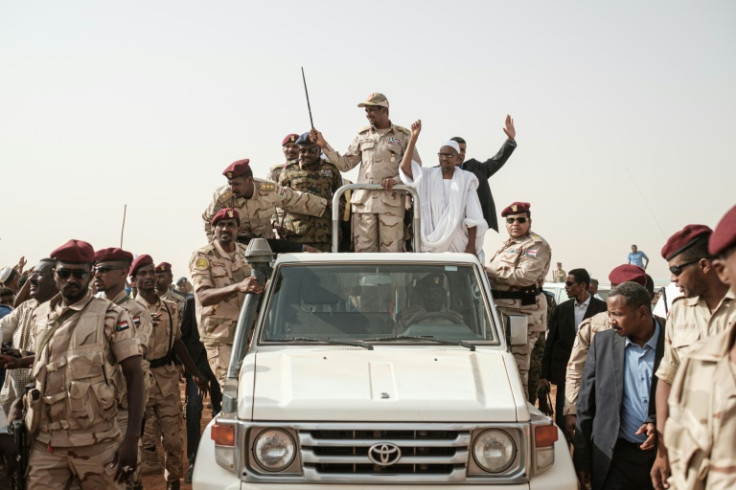
Sudanese paramilitary commander Mohamed Hamdan Daglo, who has been sanctioned by the United States for genocide, went from feared Darfur militia commander to de facto vice-president before unleashing a devastating war for power.
Daglo's Rapid Support Forces have been battling the regular army of Abdel Fattah al-Burhan since April 2023 in a war that has killed tens of thousands of people and forced more than 12 million from their homes.
Both sides have been accused of war crimes, but Daglo's paramilitaries were accused by Washington of genocide on Tuesday for targeting particular ethnic groups with mass killings and gang rapes during their capture of virtually all of Darfur.
In an accompanying statement, the US State Department said it was banning Daglo from entering the United States "for his role in systematic atrocities committed against the Sudanese people."
Secretary of State Antony Blinken said Daglo had been designated "for his involvement in gross violations of human rights in Darfur, namely the mass rape of civilians by RSF soldiers under his control."
The US sanctions deal a massive blow to Daglo's efforts to present himself as an acceptable alternative to Burhan as de facto leader.
Before falling out, Daglo had supported a coup by Burhan in 2021, which derailed a transition to civilian rule following the 2019 ouster of longtime autocrat Omar al-Bashir, and cemented Daglo's power as second-in-command.
Often dressed in desert fatigues, the tall and slightly stooped Daglo -- widely known by his nickname Hemeti, short for Mohamed -- virtually disappeared from view in the early months of the war, fuelling rumours of his sickness or death.
But by the end of 2023, Daglo was meeting African heads of state on a diplomatic charm offensive designed to boost his legitimacy.
Born in around 1975 to the Rizeigat, an Arab tribe of nomadic sheep and camel herders, Daglo received little formal education.
He rose to prominence when the Bashir government began arming the Arab tribes to suppress a rebellion by non-Arab minorities that broke out in Darfur in 2003.
Militiamen known as Janjaweed were ordered to burn down minority farming villages suspected of supporting the rebels in a scorched earth campaign that saw Bashir indicted for war crimes, crimes against humanity and genocide by the International Criminal Court.
The war left hundreds of thousands dead and more than two million displaced and by 2013, Bashir had appointed Daglo commander of a new force made up largely of former Janjaweed -- the RSF.
Despite his rapid rise through the ranks, Hemeti never won the respect he thought he deserved among the Arab elite in Khartoum.
"The old guard, dominated by the old Sudanese elite around Khartoum, very much view Hemeti as an illiterate, upstart thug whom they first armed to do their dirty work in the war in Darfur," said Alan Boswell, Horn of Africa director at the International Crisis Group.
For nearly a decade, Daglo used his reputation as a ruthless militia commander and street-smart leader to edge his way closer to power, all the while growing richer off lucrative RSF-controlled gold mines.
The RSF were deployed to Yemen when Sudan joined the Saudi-led intervention against Iran-backed Huthi rebels in 2015, in a move that proved a boon for both Daglo and his then patron Burhan.
"It allowed him, alongside Burhan, to meet United Arab Emirates officials and Saudi officials and present themselves as possible successors of Bashir," researcher Jerome Tubiana said.
When the military toppled Bashir in a palace coup in 2019, Daglo became the second most powerful man in the country, but the RSF's part in the ensuing crackdown drew accusations of atrocities.
When security personnel attacked pro-democracy demonstrators camped out in the heart of the capital in June 2019, it was the RSF that witnesses said were at the forefront of the bloodshed, killing at least 128 people.
After the coup, Daglo moved to burnish his image, losing his heavy Darfuri accent when speaking Arabic.
Crucial has been the staunch support he has received from the United Arab Emirates, which has included arms deliveries through neighbouring Chad, diplomats, analysts and human rights groups say.
The wealthy Gulf state has repeatedly denied arming the RSF but has come under mounting US pressure to end its support.
The RSF revealed a knack for social media early in the war, that analysts put down to UAE-funded public relations advice, before its accounts were suspended by social media platforms Meta and X.
Now relegated to Telegram channels and the rare video address, Daglo still claims to be safeguarding democracy against "the putschist forces" led by Burhan, whom he condemns as a "criminal" and "a radical Islamist".










